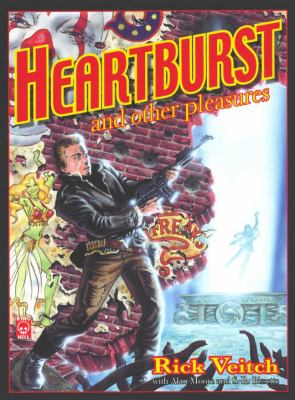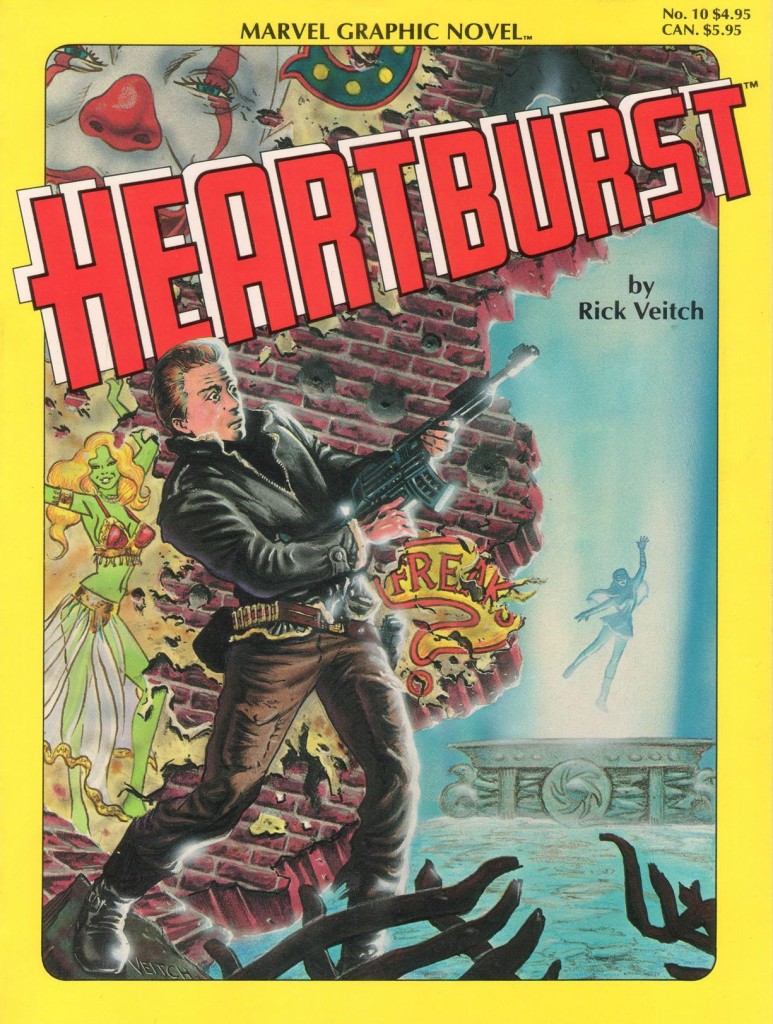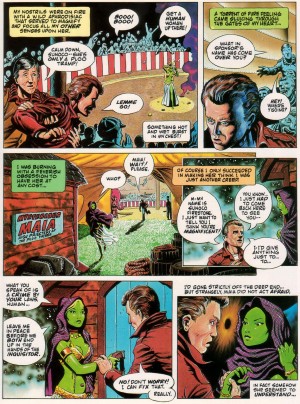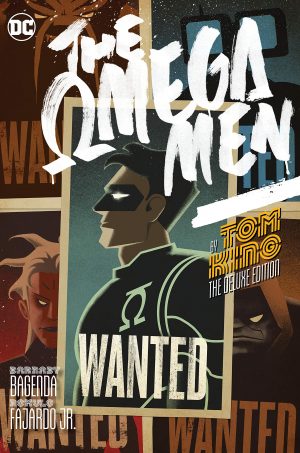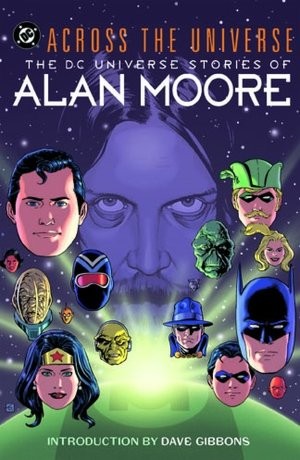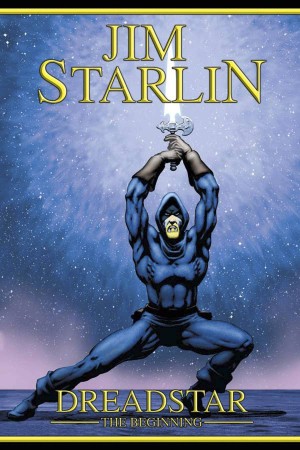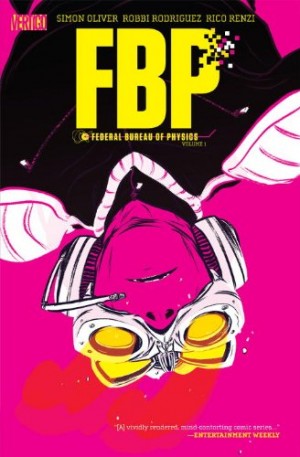Review by Ian Keogh
Rick Veitch was among the first creators to take advantage of Marvel’s early 1980s willingness to publish creator-owned material, delivering Heartburst, an artistically ambitious science fiction story about humans expanding across the galaxy. They’ve accompanied by religion, intolerance, violence and paranoia. Sunoco begins the story as apprentice to a cleric despite there being little piety, enthusiasm or even competence about him. He becomes infatuated with Maia, a green skinned Ploo woman with whom contact bis forbidden, so Sunoco runs away to join the circus and embarks on the journey of a lifetime.
Veitch uses this coming of age story to explore artistic freedoms by merging his underground comic sensibilities with a love of 1950s EC science fiction comics. Go with the flow and it’s a wild ride, but start picking at the logic and everything rapidly falls apart. ‘Heartburst’ is deliberately episodic, having the feel of Veitch thinking he’ll never have another chance like this, so throwing in everything he’s ever wanted to draw, then building the discursive story around that. When the allotted pages run out, so does the plot. The most memorable aspects are all illustrative, a brilliantly designed train, a great mountain scene, or a fantastic prison.
The ‘other pleasures’ of the title is a selection of rarities. By 2008 a fifty page graphic novel was very slim indeed, so Veitch repackaged ‘Heartbust’ with a number of short pieces contributed to anthologies, almost all written by others, not thematically linked and never previously available in book form. The closest in spirit to the title story is ‘A Day to Remember’, whimsical science fiction written by Bob Stine.
The most notable extra is Veitch collaborating with Steve Bissette on the art for ‘The Mirror of Love’, Alan Moore’s exploration of same sex love from pre-history onwards. It’s impassioned and forthright, with Veitch illustrating the angelic lovers on every page, their purity contrasting the persecution provided by Bissette. The message is correct, but Moore’s script is poetic indulgence. Better is ‘Underpass’ an autobiographical recollection of a once in a lifetime offer.
The title story forms the bulk of the book, and is extremely verbose, and not as much fun as it might have been when first delivered in 1984.
